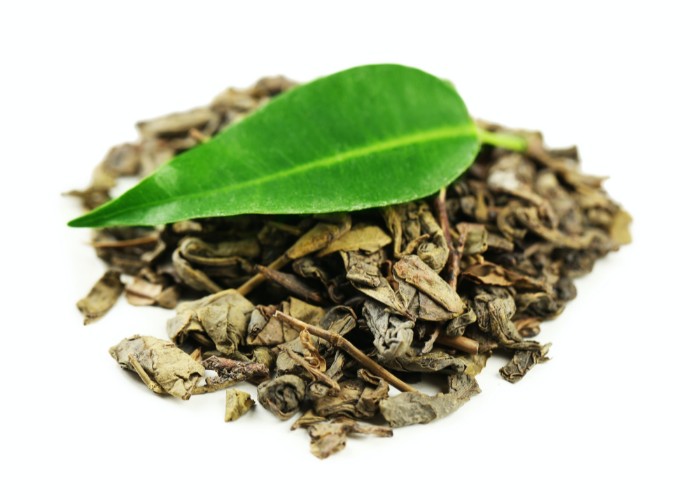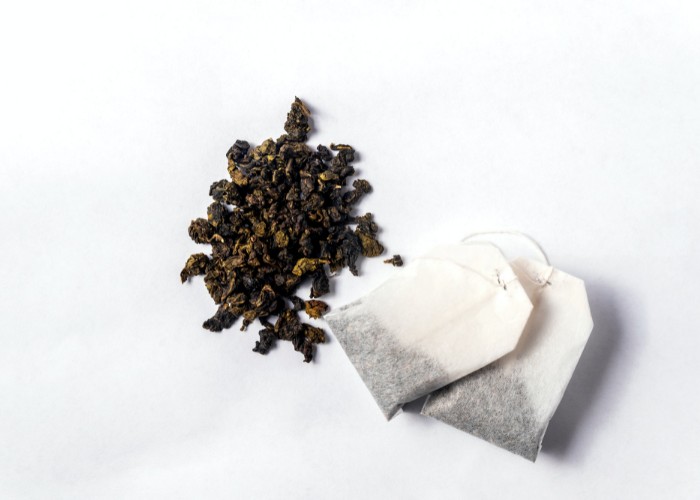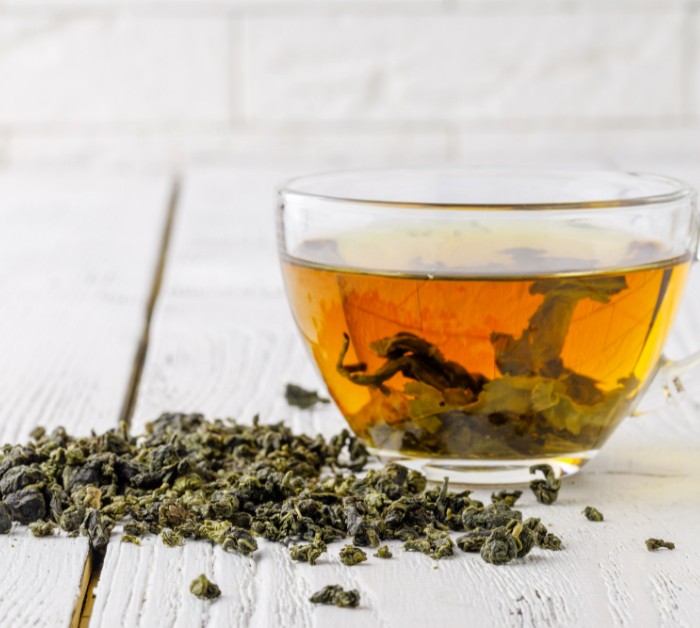Benefits and side effects of green tea
Drinking green tea is definitely good for you. A cup of green tea contains less caffeine than coffee but gives you more energy for a longer period of time than a cup of coffee.
Rich in antioxidants and other compounds, green tea is one of the healthiest beverages on the planet.
In this post we will examine why green tea is good for you, what are the benefits and potential side effects of consuming this healthy drink every day.
Before we start let’s see some interesting facts about green tea:
Green tea comes from the same plant that produces black tea and oolong tea, Camellia Sinensis. The difference lies in the way they are processed.
The origination of green tea began in China tracing all the way back to 2727 BC. Legend says that Emperor Shen Nung accidentally drank water that had a dead tea leaf boiled in it. The Emperor found the flavor refreshing, and a new beverage was created.
It was primarily available to the highest tiers of Chinese society and was very expensive. It was not until the 14th century that green tea became accessible to the general public.
This tea was first brought to Britain in the early 17th century by the East India Company. It was very expensive and only the rich could afford it.
This post may contain affiliate links, which means we may receive a small commission, at no cost to you, if you make a purchase through a link. For more information, please see our disclosure.
What is green tea good for?
According to the National Centar for Complementary and Integrative Health (NCCIH) green tea has been used for medicinal purposes in Japan and China for thousands of years. There is no doubt that green tea is good for you.
Also, NCCIH points out that despite the fact that many studies have been done on green tea and especially on green tea extracts which are much stronger than your average at-home brew, a definite conclusion cannot yet be reached on whether green tea is helpful for the most purposes for which is used.
The potential benefits of green tea can also vary based on the way you make it and the brand you choose. Hot tea may have more antioxidants since iced tea usually uses fewer tea bags and is watered down.
On the other hand, tea that is cold-brewed over the course of a few hours has an identical amount of antioxidants as hot tea. Decaffeinated green tea may also not pack as many benefits because processing can take away the antioxidants.

No matter how you make it or which brand you will use this popular drink is good for you and here are the main benefits of drinking green tea:
Green tea is overflowing with protective antioxidants
Green tea is rich in polyphenols, which include flavanols, flavonoids, and phenolic acids. These compounds may account for up to 30% of the dry weight. Most of the green tea polyphenols are flavonols, commonly known as catechins.
Catechins are natural antioxidants very abundant in tea, cocoa, and berries. These substances can reduce the formation of free radicals in the body, protecting cells and molecules from damage.
According to a review from 2003, many of the beneficial effects of green tea are attributed to its most abundant catechin – epigallocatechin-3-gallate (EGCG). Research has tested EGCG’s ability to help treat various diseases. It appears to be one of the main compounds that give green tea its medicinal properties.
Green tea also contains small amounts of minerals that are good for you. It’s good to know that lower-quality brands can contain excessive amounts of fluoride. The fluoride content could be used as a quality indicator for tea evaluation.
Try to choose a higher-quality brand of green tea. According to a study published in the Journal of Agriculture and Food Chemistry, the fluoride level increased with the decline in quality and showed a good correlation with the quality grades.
May improve brain function
Green tea naturally contains caffeine. It doesn’t contain as much as coffee, but enough to produce a response without causing the jittery effects associated with taking in too much caffeine.
Learn more: Green Tea Caffeine Content and How Much Caffeine Is Too Much
This tea also contains an amino acid called L-theanine which produces a calming effect. This combination of caffeine and L-theanine in green tea has been shown to optimize brain function to enhance working memory, cognitive performance, and elevate mood.
Studies show that a combination of caffeine and L-theanine can have powerful effects in improving brain function. Because green tea contains a smaller dose of caffeine and L-theanine, this tea may give you a much milder and different kind of buzz than coffee.
People also claim that they have more stable energy and are much more productive, when they drink green tea, compared with coffee.
If you want to replace your coffee with tea here is an interesting article to read and to choose between caffeinated and caffeine-free teas: Best Tea Alternatives To Your Morning Coffee With and Without Caffeine.
May protect the heart
Drinking green tea is good for your heart health. Studies show that green tea protects the heart by reducing total cholesterol, “bad” LDL, blood pressure, and triglycerides.
Furthermore, green tea increases the antioxidant capacity of the blood, which protects the LDL particles from oxidation, which is one part of the pathway toward heart disease.
Also, according to a Japanese study from 2013, a higher intake of green tea is also associated with a lower risk of stroke.
Green tea has fat burning properties
Green tea can increase fat burning and boost metabolic rate. Speeding up your metabolism is a sure way to feel better in general.
A 2008 study published in the American Journal of Clinical Nutrition involved 12 healthy men, showed that green tea extract increased fat oxidation by 17% compared with those taking a placebo.
However, we must mention that some studies on green tea don’t show any increase in metabolism. So, the effects of green tea on fat-burning may depend on the individual, variations in green tea extracts, physical activity, etc.
Learn more: 5 Best Herbal Teas for Weight Loss: Delicious and Healthy
May support weight loss
As we mentioned before that green tea can boost the metabolic rate in short term, as a result of this it makes sense that it may help you lose weight.
A randomized controlled trial that investigated the effects of green tea on weight reduction in obese participants showed that weight and waist circumference decreased in those who drank green tea.
The caffeine in green tea may help suppress appetite and speed calorie burning through a process called – thermogenesis. Just be aware that most of the research on green tea is on the highly concentrated extract and does not involve the tea bag steeping in your cup.
If you think to add green tea into your diet to help with weight loss, don’t expect this to work if you are eating a high-calorie diet, or if you are drinking tea with added sweeteners.
Losing weight is not so easy- you must follow a healthy, balanced diet and exercise regularly. Drinking green tea may help with your weight loss goals, but don’t expect it to be a silver bullet.
Read further: Black Tea vs. Green Tea: Which Is Better For Weight Loss?
It may help balance blood sugar and prevent diabetes
Type 2 diabetes is on increase and this could be due to today’s diets and the fact that we often exercise less than we should. A meta-analysis of 17 trials comprising a total of 1133 subjects investigated the effect of green tea on glucose control and insulin sensitivity.
The results showed that green tea helps reduce fasting blood sugar levels, as well as values of Hb A1C, a measure of average blood sugar over the previous three months.
Another study in Japanese individuals found that those who drank green tea had an approximately 42% lower risk of type 2 diabetes.
Scientists found that the consumption of green tea was inversely associated with the risk of developing diabetes, even after adjusting the data for age, body mass index, and other risk factors. So there is something about green tea that is itself protective.
Green tea protects skin from aging
Research from 2014 shows that polyphenols in green tea protect skin from the effects of UV (ultraviolet light). This helps prevent the acceleration of aging.
Also, green tea compounds help defend against wrinkles due to their ability to prevent the breakdown of elastic fibers and collagen, which in turn forestall the loss of skin elasticity.
Green tea benefits oral health
Your oral health is very important. Some illnesses and diseases can result from less than taken care of set teeth and gums. The catechins in green tea can suppress the growth of bacteria and lower the risk of infections. Furthermore, there is also some evidence that green tea may reduce bad breath.

You can buy your naturally grown Japanese organic green tea from Amazon here.
Potential side effects of drinking green tea
Drinking tea is considered mostly safe for adults and there are a few side effects to keep in mind. Most of the side effects of green tea can be avoided by consuming only moderate amounts. Many of the green tea side effects only occur when consumed in massive amounts-something most tea drinkers don’t do.
Certain individuals with sensitivities to ingredients in green tea should avoid this beverage. The main compound that causes reactions in sensitive individuals is caffeine.
A cup of green tea 8 oz (240 ml) serving usually contains approximately 35 milligrams of caffeine. The actual amount of caffeine can vary between 12 mg to 75 mg. This depends largely on the variety of tea plants, gits growing conditions, and the way it is processed and brewed.
The side effects from the caffeine in green tea can range from mild to serious and include headache, nervousness, sleep problems, vomiting, irritability, irregular heartbeat, ringing in the ears, confusion.
In general, if you drink a cup of coffee without these symptoms you are unlikely to experience negative side effects of drinking green tea.
Risks for pregnancy
Caffeine, tannins, and tea catechins are all linked to increased risk during pregnancy. According to experts drinking no more than 2 cups of green tea per day is safe during pregnancy and breastfeeding. Caffeine is passed through breast milk to infants so monitor your intake with your physician.
Drinking more than 2 cups per day is not recommended. It can lead to miscarriage and birth defects in children. Make sure to keep your caffeine intake below 200 milligrams per day.
Catechins may reduce iron absorption
Catechins in green tea may reduce your ability to absorb iron from foods. Consuming catechins in large quantities may lead to iron deficiency. Regularly drinking green tea isn’t a concern for most healthy individuals.
Those at risk of iron deficiency should consider drinking tea in between meals and waiting at least one hour after eating before drinking tea.
Can I drink green tea on an empty stomach?
It is not recommended to drink this tea on an empty stomach. Tannins present in the tea can cause some stomach problems and you may experience nausea. These compounds can increase stomach acid, leading you to feel sick and even have a stomach ache.
It is recommended to drink green tea in between meals. If you drink it with your meal it could interfere with iron and it is not good. So try to consume this tea in between meals.
How much green tea should you drink per day?
Drinking 3 to 5 cups per day seems to be optimal to reap the most health benefits. How much you consume depends on how much you can tolerate. Remember, green tea contains caffeine. Despite the fact, it contains less caffeine than coffee someone can tolerate more caffeine and someone less.
Not everyone wants and can drink 3 or 5 cups of green tea per day. As long as you are drinking a cup or more per day that is great!

Final thoughts about the benefits of drinking green tea
According to all the above drinking green tea is good for you. First, it is a great alternative to coffee, it contains less caffeine but you will get more energy and focus for a longer period of time due to the presence of L-theanine.
Furthermore, it is shown that is good for your heart health, may also help with fat burning and weight loss. It is also good for your oral health and may protect your skin from aging.
Try not to drink more than 3 to 5 cups per day, excessive consumption may cause some side effects mainly connected with the caffeine content.
Great thing is that you can drink it warm or cold. It is recommended not to pour the boiling water over the tea leaves immediately after it has boiled. Let the boiling water rest for a couple of minutes and then pour.
Steep it for one to five minutes, depending on your taste. The longer you brew the tea and the hotter the water, the more caffeine will make its way into your cup of tea.
Finally, make your perfect cup of green tea and enjoy!




